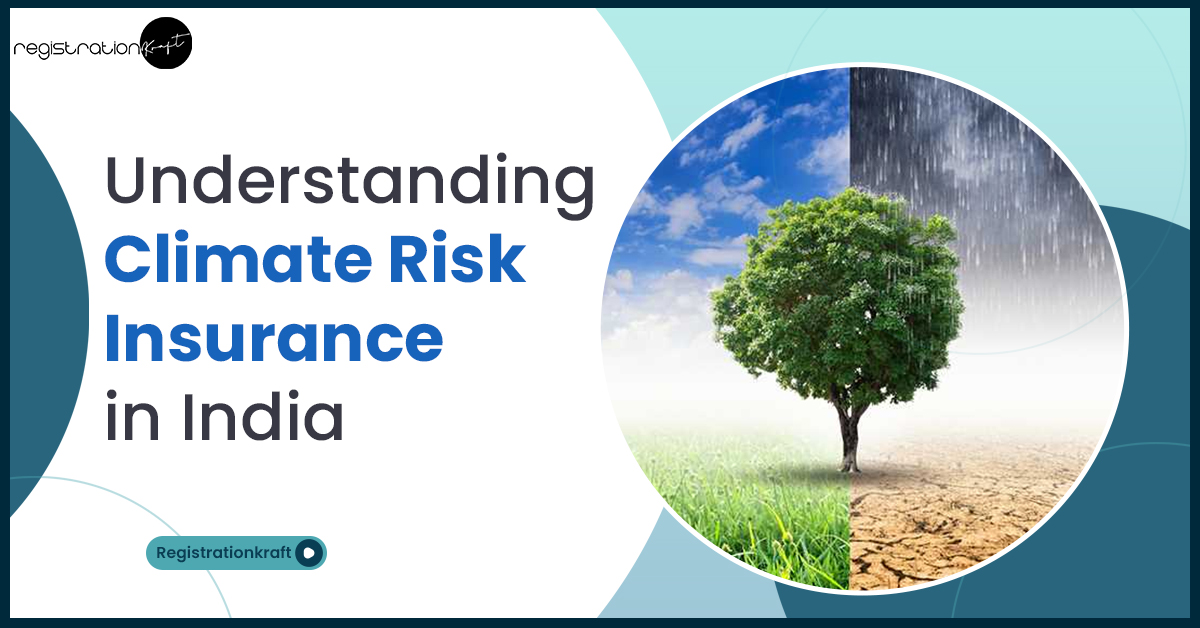Have you ever heard about climate risk insurance? Do you know what does it mean? Well, if you don’t know about this type of insurance, you can get to know everything about climate risk insurance in the following post. With the paradigm shift in the behavior of the climate, it is no surprise that it may pose unpleasant surprises for the human population at any point in time. This is where climate risk insurance becomes important. Over time, it has been seen that the rapid change in climate has presented newer challenges for different sectors including the insurance sector.
What is climate risk insurance?
Put simply, climate risk insurance is intended to help the policy holder seek protection against the threats posed by changing climatic conditions. Though it is quite a new type of insurance in India, it is meant to ensure high level of protection to stakeholders facing severe threat from irregular climate. A few examples of climate-related risks can be defined as floods, earthquake, electrical storms, wildfires, etc.
Climate Risk Insurance – Indian Scenario
According to domain experts, India is known to have at a high risk related to weather as the country’s adaptive capability for climate change is very low. If not manged prudently, it tends to cause a big jolt to burgeoning GDP of India as much as 35% by the year 2050. In addition, productivity losses could touch a figure of 34 million jobs by 2030 due to climate-related issues. This is where climate risk insurance becomes a big help for corporations and individuals that are at the verge of climate-related risks.
Since the private sector has always been a major part in the insurance sector, there are several private insurance firms that have either launched climate risk policies or planning to launch the same in coming days. The primary beneficiary of climate risk insurance would be agriculture sector which is known to get affected by the climate at large. Since 2/3rd population of the country depends on the agriculture sector, this type of insurance is going to play a pivotal role in driving country’s economical growth while mitigating the associated risks.
As of now, crop insurance is one example of climate risk insurance that has been a crucial tool for farmers and farm owners in regard to climate-related protection. For ages, insurance loss transfer has been employed as a proven way to control the risk associated with vague losses.
Crop insurance is an important tool for risk transfer in the current climate. Insurance risk transfer has been used for centuries as a tool to manage the risk of uncertain losses. Insurance is fundamentally an instrument that transfers risks, or a portion of a risk, from the insured to the insurer in exchange for the payment of a premium. A large part of the population carries an understanding in their minds that insurance plays a significant role in a country’s economic ecosystem because it curtails uncertainty. In the absence of insurance, several procedures and activities would be considered full of risks and would not be done, and individuals who suffer a loss may find it difficult to recover.
Some of the primary benefits of climate risk insurance are:
- Activating sustainability of industrial sectors
- Uplifting the food and agriculture networks
- Levelling up the power transmission
- Developing sturdier infrastructure
- Enabling digital insurance solutions
The Conclusion
At a time when the world has been facing several unprecedented issues like COVID, unabated floods, drought, climate risk insurance gives a kind of assurance to stakeholders particularly related to the agriculture sector which tends to face a direct impact of any change in the weather. By paying a fixed monthly premium, policy holders can expect to make a claim against the losses causes due to bad weather.
People also read :How Insurance Companies Detect and Prevent Fraudulent Claims?

